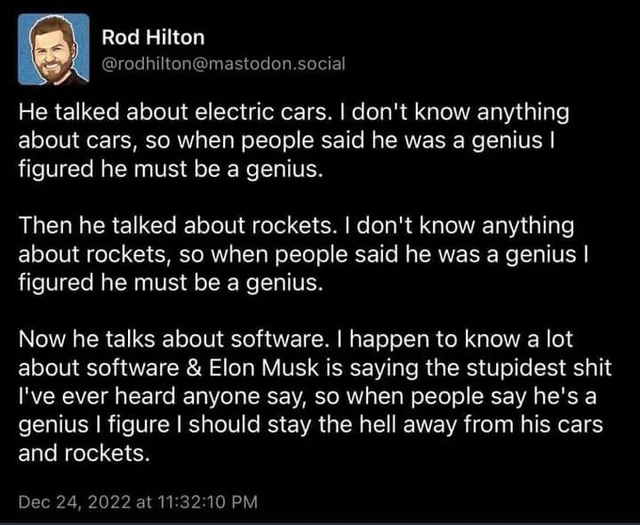

I hate public smokers with a passion. But you must realize that you have effectively zero exposure to people that contain their smoke by doing it at home or using a method without smoke production. And there could be a lot more of those.
The last line is especially golden for me since I live in the Netherlands so we have plenty of weed being smoked but the vast vast majority of public smoke hinderance is from tobacco smokers. If they decide to smoke in public they have absolutely no shame and will literally do it at places like bus stops and just outside restaurants. Weed smokers rarely do that here. So if I were to believe you it seems to just be correlated to people with shitty attitudes rather than the substance.
But there’s no denying that if everyone would drop alcohol for weed, it would be better. Not because weed is harmless but because alcohol is pretty terrible health wise.






I feel you in avoiding public transit. That’s where my hate comes from as well. And yes, many people that do these things have have excuses. Because they need to, to justify doing their business in a place where their habit unavoidably harms and frustrates other people. I hate the fact we still allow that so readily as society. Or at least we should restrict it further to the point a normal person doesn’t have to be bothered by people like that in public. It undermines public services to an extent.
But after I no longer needed to use public transit, I did start to see things in a slightly different light. And that’s the only thing I wanted to say. People that are conscientious about enjoying any kind of mind altering substances will choose to do so safely and harmlessly outside of public, or in designated places like clubs specifically for that substance. Harm reduction must be central to substance use. And I know now that many people have that mentality. But that mentality is somewhat threatened exactly because they make sure nobody is bothered by them. It causes the experience to be defined by those people in public places, the loud minority.